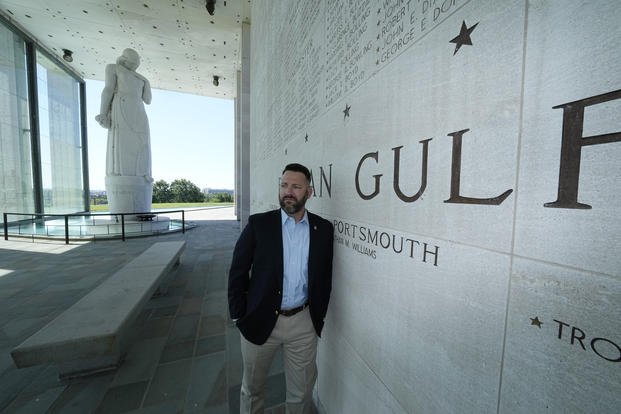The U.S. Supreme Court on Tuesday ruled in favor of an Army combat veteran who sued the Department of Veterans Affairs over his eligibility for education benefits under the Montgomery GI Bill and Post 9/11 GI Bill.
In a 7-2 decision, the court sided with James Rudisill, a veteran of Afghanistan and Iraq who argued that he was eligible for up to 48 months of education benefits under the programs, which he had enrolled in while serving two separate stints in the Army.
In the opinion, Justice Ketanji Brown Jackson said that a reading of the laws indicated that Rudisill was entitled to benefits under both programs and shouldn’t have been limited to the time requirements of each individual program.
Read Next: ‘Indefinite’ Defense Department IDs Inconvenience Air Travelers, May Be Dropped As Acceptable Identification
“Rudisill earned two separate entitlements to educational benefits, one per the Montgomery GI Bill and the other per the Post-9/11 GI Bill, by serving in the military for nearly eight years over three separate periods,” Jackson wrote. “The bottom line is this: Veterans who separately accrue benefits under both the Montgomery and Post-9/11 GI Bills are entitled to both benefits.”
Rudisill served in the Army first as an enlisted soldier and later as an Army officer, using 25 of 36 months of his Montgomery GI Bill eligibility as a soldier to attend college, then returning to the Army and signing up for the Post-9/11 GI Bill, which he never used as an officer while on active duty.
When he left the Army as a captain, he applied to Yale Divinity School, with the intention of becoming an Episcopal priest and returning to the Army as a chaplain. He planned to pay for the school with Post-9/11 benefits, believing he had 23 months remaining of additional education benefits. But the Department of Veterans Affairs said he only had 11 months of eligibility under the program.
In the case, Rudisill argued that a Korean War-era law allowed veterans to use benefits from a combination of programs for up to 48 months. The federal government argued that a veteran eligible for the Montgomery GI Bill who later was eligible for the more generous Post-9/11 GI Bill when it was introduced were to make a decision on which to use and, in doing so, agreed to combine the two programs for 36 months of eligibility, the maximum allowed under each separately.
Rudisill’s attorneys have said the decision could affect roughly 1.7 million veterans. According to The Associated Press, however, the VA has disputed that number, noting that the lawyers have not identified any other similar cases.
In a statement released through his attorneys, Rudisill said the case was a “fight … for all military veterans who, like me, were denied what they were promised after their service to our country.”
“It has been humbling to represent the veterans’ community, and I am so grateful for my legal team and the court’s decision here,” said Rudisill, who now works for the FBI.
Following the announcement, a spokesman for the Department of Veterans Affairs said the VA was reviewing the decision.
“As always, we are committed to helping veterans get the world-class education they’ve earned so they can continue successful careers after leaving the military,” VA press secretary Terrence Hayes said in a release. “The GI Bill is the backbone of veteran education, and we at VA are proud to help hundreds of thousands of veterans each year go to school with minimal out-of-pocket costs for tuition, housing, books, supplies and more.”
According to statute, service members aren’t allowed to use GI Bill programs concurrently — they must use one or the other. But in the decade after Sept. 11, 2001, millions of service members were eligible for the Montgomery GI Bill when the Post-9/11 GI Bill was introduced, an extended period of overlap, and Congress allowed those who served after 9/11 but before the law passed to opt into the Post-9/11 GI Bill.
Jackson said in the opinion, however, that the law limits exceeding the entitlement but swapping options but does not exhaust the requirement.
Justice Brett Kavanaugh wrote his own concurring opinion while Justices Clarence Thomas and Samuel Alito dissented.
Attorneys from the firm Troutman Pepper, including Timothy McHugh, who led the case from the start as a first-year associate with the firm, and David DePippo with Dominion Energy argued the case in November. In a statement Tuesday, they said the decision was a career highlight.
“Today is momentous for millions of veterans, and we are relieved by the court’s decision,” DePippo said in a statement. “The case stretched for the better part of a decade, but we are proud of the lasting effects it will have for our country’s deserving military veterans.”
Related: Army’s Premier Education Benefits May Be on Chopping Block, with Tuition Assistance Cuts Being Considered, Too
Story Continues
Please rate this CIBA article
Vote






